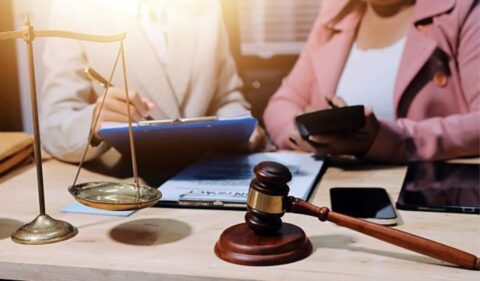When criminal charges come into your life, it can feel like everything stops. Your work might be in danger, your family could worry a lot, and your plans for the future seem unclear. But there is hope. If you learn about your rights and how the legal steps work, you can face it with more confidence. This guide explains arrests, trials, sentences, and the important job of criminal defence lawyers in Australia. We use very easy English, short sentences, and real-life examples to help you read it without trouble. Let’s start from the beginning so you feel ready.
What Are My Rights If I’m Arrested?
An arrest happens fast and feels very scary. You might not know what to do or say. But in Australia, the law gives you strong rights to keep you safe. Police have to follow these rules every time. If they don’t, it can help your case later. Here are your key rights, explained simply.
Right to Be Informed Police must tell you right away why they are arresting you. They also say what charges you face. This happens before they take you away. No delays or secrets. For example, if someone says you took something from a store, they explain it clearly. This helps you understand and think about calling a lawyer or family.
Right to Legal Representation You can choose a lawyer to talk to during the arrest. Police let you call them. If you don’t have money for a private lawyer, legal aid can give you free or cheap help. The lawyer makes sure police treat you right and tells you what steps to take next. It’s like having a friend who knows all the rules.
Right to Remain Silent You only need to give your name and address. That’s all. You don’t have to answer any questions about what happened. Staying silent stops you from saying words that police can use against you in court. They might say “just tell us your side,” but you can say “I want to stay quiet.” Many people learn this the hard way, so remember it.
Right to Humane Treatment While police hold you, they must give you food, water, a place to sit or sleep, and time to rest. You can call family or a friend. If you need medicine, a doctor, or someone to translate your language, they have to help. This right keeps things fair and human. No one should suffer extra before court.
Right to Be Brought Before a Court Most times, police take you to court within 24 hours. A judge looks at the arrest to see if it was done right. You can tell the judge if something was wrong. This stops police from holding you too long without a good reason. It’s an early chance to fight back.
These rights are for everyone. If police break one, write it down or tell your lawyer. They protect you from the first moment.
How Long Can the Police Hold Someone Without Charge?
Police can’t keep you locked up forever without saying if they will charge you. There are time rules to make it fair. These change a little by state, like New South Wales or Victoria, but the idea is the same: quick decisions.
Initial Detention Period After arrest, police get a short time, often up to four hours. They use it to ask questions and check basic facts. This lets them see if they have enough to charge you. It’s not a lot of time, so they work fast.
Extension of Detention If they need more hours, they go to a court and ask. A judge listens to why. Is the crime serious? Is the investigation going well? For example, in a car accident case with injury, they might need time for tests. The judge says yes or no. No free extra time.
Release or Charge When time ends and no charge, they let you go home. If they hold longer without reason, it’s against the law. You can complain or go to court about it. This rule stops police from using arrest to scare people.
Always check the time. Ask for a lawyer if it goes over. This knowledge gives you power.
What Happens During a Criminal Trial?
A trial is like a big meeting in court where both sides show proof. The prosecution tries to show you did wrong. The defence says no or finds mistakes. A judge controls it all. Sometimes, a jury of normal people helps decide.
Pre-Trial Procedures Before the full trial, things prepare:
- Committal Hearings: This is a first look. The court checks if proof is strong enough for a real trial. If not, the case stops. It saves time for weak stories.
- Plea Negotiations: Lawyers from both sides talk. You might agree to say yes to a smaller charge for less punishment. Many cases finish here without a big trial.
These steps make the process faster and fairer.
Trial Process The main trial has clear parts:
- Opening Statements: Prosecution says what they will prove. Defence says why it’s not true or weak. It’s like telling the story first.
- Presentation of Evidence: People who saw things come and talk under promise to tell truth. They show photos, videos, or papers. Think of a fight case with phone video—that’s big proof.
- Cross-Examination: Now, your side asks questions to the other witnesses. Find lies or forget things. It can change the whole story.
- Closing Arguments: Both sides talk last. They say why judge or jury should pick their side. No new stuff, just strong points.
Everyone follows rules to keep it honest.
Verdict and Sentencing The judge or jury thinks private. Then they say guilty or not guilty. If guilty, judge gives sentence. They look at how bad the crime was, your life before, if you say sorry, and more. If it’s your first time, it might be lighter. Sentences fit the facts.
A good lawyer helps every step to make your voice heard.
Defence Law Services
Defence law services are there for people facing charges. They fight to keep things fair and protect you.
Legal Representation The lawyer goes to court with you. They talk for you and question bad proof.
Legal Advice They explain all choices, like fight or deal, and what can happen.
Negotiation of Plea Deals They talk to prosecution for better terms, like drop some charges.
Appeal Services If you lose, they help go to higher court to fix mistakes and change result.
Without this, it’s hard to win alone.
Can I Plead Guilty to Reduce My Sentence?
Saying guilty early might get you less time or money punish. But don’t do it fast. Talk to lawyer first.
Benefits of Pleading Guilty
- Potential for Reduced Sentence: Courts like quick yes. It shows you own the mistake. Can cut punish up to 25% in some places.
- Avoidance of Trial: No long court days. End sooner and save worry.
Good if proof against you is very strong.
Considerations Before Pleading Guilty
- Strength of the Prosecution’s Case: If they have lots of proof, plea helps. If weak spots, fight better.
- Advice from Legal Counsel: Lawyer sees all papers and tells best way.
Think hard. It’s your life.
What Penalties Can I Face for a Minor Offence?
Small crimes still mean punish. But not always jail. Goal is learn lesson.
Common Penalties for Minor Offences
- Fines: Pay money to court. Like for fast driving or small steal.
- Community Service: Work free hours, like clean park or help old people.
- Probation: Live home but meet officer often. Follow rules.
- Suspended Sentences: Jail time but not now. Be good or go serve.
These let you fix without big lock.
Factors Influencing Penalties
- Prior Criminal History: No past trouble? Easier punish.
- Remorse and Rehabilitation: Say sorry and try change? Helps a lot.
- Impact on Victim: If hurt someone bad, punish more.
Judge thinks all this.
How Are Fines, Community Service, and Jail Sentences Determined?
Courts don’t pick random. They use guides.
Sentencing Guidelines Rules from law and old cases. Keeps all courts same.
Aggravating and Mitigating Factors
- Aggravating Factors: Did it before or hurt weak person? Worse punish.
- Mitigating Factors: First time, real sorry, get help? Less punish.
Purpose of Sentencing Stop more crime, make pay for bad, help person better, keep safe. Small lie get fine. Big fight get jail.
What Is the Difference Between a Suspended Sentence and Probation?
Both mean no jail right now. But not same.
Suspended Sentence Jail punish wait. Follow all rules good, it go away. Break one, go jail full.
Probation Live free but officer watch. Meet regular, keep job, no bad. Break, maybe jail.
One is like sword over head. Other is helper watch.
How Do I Choose the Best Criminal Lawyer in My Area?
Right lawyer can change end. Pick careful.
Factors to Consider
- Experience: Know criminal cases like yours. Ask years.
- Reputation: Read online reviews or ask friends. See wins.
- Consultation: Many free first talk. See if they listen you.
- Fees: Ask cost clear. Fit your money.
- Communication: Call back fast, explain simple.
Talk to 2 or 3. Pick who feel right.
Function of Lawyers for Criminal Defence
The function of lawyers for criminal defence is keep you safe from wrong charges and make sure trial fair. They look close at all proof, make smart plans, talk loud in court for you. They make deals if good, tell all ways to go, and fight if police did wrong. This helps get best end in tough law world. For example, they find missing witness or bad police note.
Responsibilities
- Case Evaluation: Check if case strong or weak. Tell you true.
- Legal Representation: Stand with you in court every day.
- Negotiation: Talk hard for less bad result.
- Appeals: If lose, go up court fix error.
- Client Support: Help feel less scared, answer questions any time.
They are your strong team.
Conclusion
Learning about arrests, trials, and sentences in Australia makes you ready. Know rights from start, understand steps, see lawyer power. This turns fear to plan. Get a criminal defence lawyer soon. They guide you right. Stay smart, ask help, build good future even now.
Disclaimer
This article shares simple information about criminal law in Australia. It is not legal advice. Laws can be different in each state and territory, and every person’s situation is unique. Please talk to a qualified criminal defence lawyer for advice that fits your own case. The author and publisher are not responsible for any actions you take based on this article. For real help, contact Defence law services from licensed professionals who know the law well.





